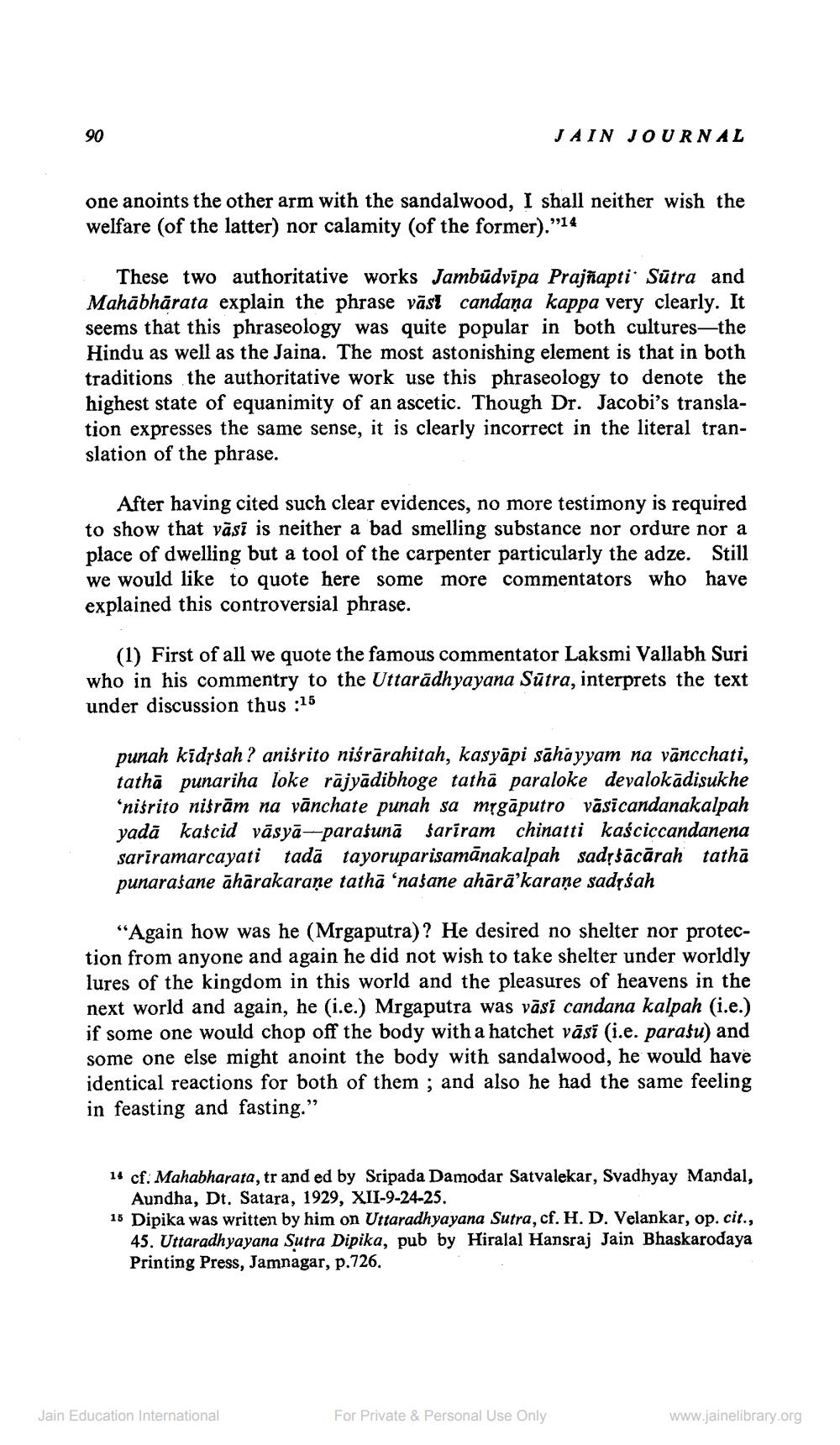________________
90
one anoints the other arm with the sandalwood, I shall neither wish the welfare (of the latter) nor calamity (of the former)."14
JAIN JOURNAL
These two authoritative works Jambudvipa Prajñapti Sūtra and Mahabharata explain the phrase vast candaṇa kappa very clearly. It seems that this phraseology was quite popular in both cultures-the Hindu as well as the Jaina. The most astonishing element is that in both traditions the authoritative work use this phraseology to denote the highest state of equanimity of an ascetic. Though Dr. Jacobi's translation expresses the same sense, it is clearly incorrect in the literal translation of the phrase.
After having cited such clear evidences, no more testimony is required to show that vasi is neither a bad smelling substance nor ordure nor a place of dwelling but a tool of the carpenter particularly the adze. Still we would like to quote here some more commentators who have explained this controversial phrase.
(1) First of all we quote the famous commentator Laksmi Vallabh Suri who in his commentry to the Uttaradhyayana Sutra, interprets the text under discussion thus :15
punah kidṛśah? aniśrito niśrārahitaḥ, kasyāpi sāhāyyam na vāncchati, tatha punariha loke rajyadibhoge tatha paraloke devalokadisukhe *niśrito niŝrām na vānchate punah sa mrgāputro vāsīcandanakalpah yada kascid väsyā-parasunā sariram chinatti kaściccandanena sariramarcayati tada tayoruparisamānakalpah sadṛtācārah tatha punarasane āhārakaraṇe tatha 'nasane ahara'karane sadṛśah
"Again how was he (Mrgaputra)? He desired no shelter nor protection from anyone and again he did not wish to take shelter under worldly lures of the kingdom in this world and the pleasures of heavens in the next world and again, he (i.e.) Mrgaputra was vāsī candana kalpah (i.e.) if some one would chop off the body with a hatchet vāsī (i.e. parašu) and some one else might anoint the body with sandalwood, he would have identical reactions for both of them; and also he had the same feeling in feasting and fasting."
14 cf. Mahabharata, tr and ed by Sripada Damodar Satvalekar, Svadhyay Mandal, Aundha, Dt. Satara, 1929, XII-9-24-25.
15 Dipika was written by him on Uttaradhyayana Sutra, cf. H. D. Velankar, op. cit., 45. Uttaradhyayana Sutra Dipika, pub by Hiralal Hansraj Jain Bhaskarodaya Printing Press, Jamnagar, p.726.
Jain Education International
For Private & Personal Use Only
www.jainelibrary.org




